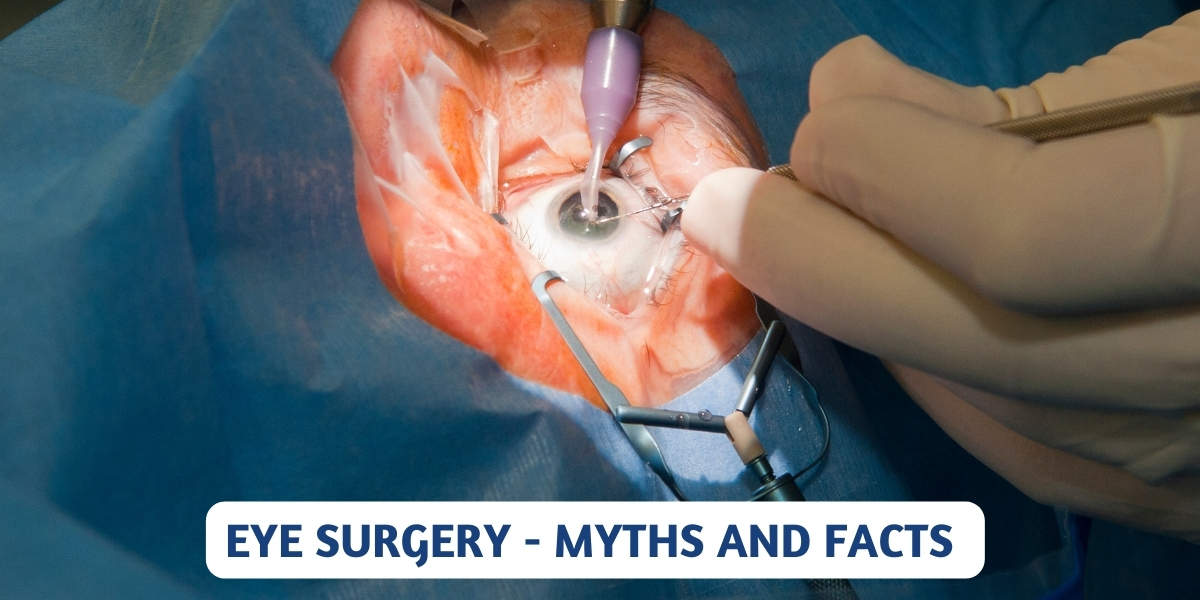Eye Surgery Myths and Facts
Eye surgeries, like LASIK, cataract surgery, and glaucoma procedures, have become increasingly common over the past few decades. However, with their rise in popularity, several myths and misconceptions have also surfaced. Many individuals delay or avoid eye surgery due to these myths, causing unnecessary fear and confusion. In this article, we will separate myth from fact and provide an in-depth understanding of what you need to know before considering eye surgery.
Myth 1: Eye Surgery is Painful
Fact: Most Eye Surgeries are Virtually Painless
One of the most common fears surrounding eye surgery is the anticipation of pain. In reality, modern eye surgeries are designed to be as painless as possible. For instance, LASIK surgery involves only minor discomfort, and patients typically experience no pain during the procedure itself. Local anesthesia, usually in the form of eye drops, is used to numb the eye. Post-surgery, there might be some mild irritation or a feeling of dryness, but these symptoms subside within a few days.
Looking for cataract surgery in Pune visit Hi Tech Eye Surgery Center. Our team at Hi Tech Eye Surgery Center performs cataract surgery using advanced, minimally invasive techniques, ensuring that the procedure remains pain-free. The recovery is quick, and patients can typically resume their normal activities shortly after.
Myth 2: Eye Surgery Has Long Recovery Times
Fact: Recovery Time is Short for Most Eye Procedures
Thanks to advancements in ophthalmic technology, the recovery period for eye surgeries is relatively short. For instance, LASIK patients can often return to their daily routines within 24 to 48 hours after surgery. Although some patients may need to avoid strenuous activities or eye strain for a few weeks, the majority experience minimal downtime.
Cataract surgery patients typically experience improved vision within days of the procedure. While complete healing might take a few weeks, most individuals can resume daily tasks within a short time frame. Proper post-operative care, such as using prescribed eye drops and avoiding heavy lifting, ensures a smoother and faster recovery process.
Myth 3: Eye Surgery is Only for the Elderly
Fact: Eye Surgery is Suitable for All Ages
While it’s true that certain conditions, like cataracts, are more common in older adults, eye surgeries are not limited to the elderly. LASIK surgery, for example, is popular among younger individuals who want to correct nearsightedness, farsightedness, or astigmatism. Additionally, other eye surgeries, such as those for glaucoma or retinal disorders, are essential for people of all ages.
Parents may also consider pediatric eye surgery for children with conditions like strabismus (crossed eyes) or congenital cataracts. Early surgical intervention can prevent long-term vision problems and improve a child’s quality of life.
Myth 4: Eye Surgery Results are Temporary
Fact: Most Eye Surgery Results are Long-Lasting
One concern many patients have is whether the effects of their eye surgery will last. For most surgeries, the results are permanent or long-lasting. For example, LASIK and PRK can permanently correct vision in many patients, and they often experience 20/20 vision or better following the procedure. While natural aging may cause slight vision changes, the corrective effects of the surgery are designed to last a lifetime.
Cataract surgery also offers permanent results since the clouded natural lens is replaced with a clear artificial one. Once a cataract is removed, it cannot return. However, some patients may develop a condition called posterior capsule opacification (PCO), which is easily treatable with a quick, non-invasive laser procedure.
Myth 5: Eye Surgery is Extremely Expensive
Fact: Eye Surgery Can Be Affordable and Worth the Investment
While eye surgery can seem costly, many procedures, such as LASIK and cataract surgery, are considered investments in long-term eye health. The cost of surgery is often offset by the savings on eyeglasses, contact lenses, and routine vision care over time. Additionally, insurance may cover certain types of eye surgeries, especially those deemed medically necessary, like cataract or glaucoma surgeries.
Many clinics offer financing plans to make these procedures more affordable for patients. It’s important to consider the long-term benefits of improved vision, which often leads to a better quality of life and increased independence from corrective lenses.
Understanding the Truth About Eye Surgery
Eye surgery is a safe, effective, and life-changing solution for millions of people. By dispelling common myths and providing accurate facts, we hope to encourage more individuals to seek professional advice and consider the benefits of modern eye surgery. Remember that early intervention, choosing the right surgeon, and understanding the facts about eye surgery can significantly improve your eye health and overall well-being. At Hi Tech Eye Surgery Center, our goal is to provide our patients with clear, accurate information so they can make informed decisions about their eye health.


